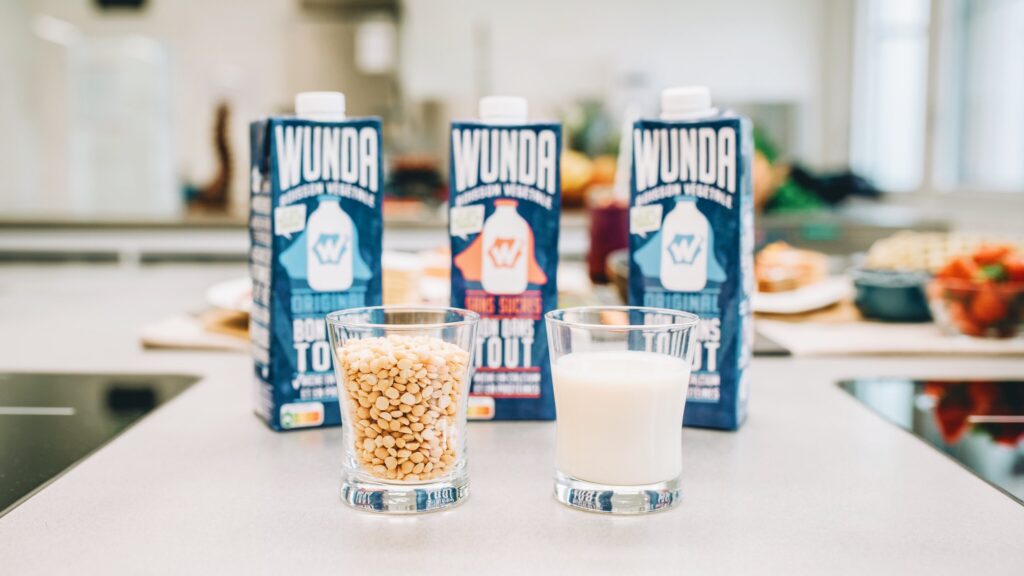(Updated June 25, 2021) Nestlé just launched carbon-neutral pea milk under the brand name Wunda.
The plant-based milk is made using yellow peas, one of the most sustainable and nutritionally dense crops in the world. Original, unsweetened, and chocolate flavor varieties first launched in France, the Netherlands, and Portugal. It is launching in the UK in Tesco and Co-op on Juna 28.
The Swiss multinational announced the move on Wednesday, as per Reuters, in an effort to further expand its various plant-based offerings. Back in February, Nestlé reported that its plant-based dairy sales achieved double-digit growth in 2020, reaching $109.41 million.
Experts and commentators predict that the global vegan food market could surpass $31 billion by 2024, while the plant-based milk sector alone may exceed $34 billion by the same year.

Pea Milk vs Oat Milk
While oat milk is the current star of the plant-based milk world thanks to its flavor, versatility, and sustainability, pea milk might just be the next big thing.
A new Market Study Report predicts that pea milk (an up-and-coming plant milk produced by brands such as Sproud, Mighty Pea, and Qwrkee) will experience pronounced growth in the coming years. Yellow peas are also being used for soy-free tofu, thanks to their minimal environmental footprint and high protein content.
According to Nestlé, its Wunda pea milk is carbon neutral and high in calcium, protein, and fiber, though the company has not provided concrete details on this. The milk could potentially rival Oatly’s growing presence in the plant-based milk market, in that it is suitable for drinking hot or cold, barista-friendly, and works in cooking and baking.
“We created a new brand for this proposition so we need to have high expectations,” Cedric Boehm, head of Nestlé’s dairy business in Europe and the Middle East, told reporters. The company developed the new milk in just six months, and Boehm said Wunda’s price will reflect “the heart of the market.”

Nestlé and the Environment
While Nestlé is betting heavily on the continued growth of the plant-based food sector (and working hard to clean up its act in terms of animal welfare and other environmental issues), the company remains controversial. Many critics highlight its spotty history of greenwashing and human rights violations, in particular.
Less than two weeks ago, the state of California sent Nestlé a cease-and-desist order after a 2017 investigation found the company to be siphoning millions of gallons of water from the San Bernardino forest to sell as Arrowhead brand water. The state is currently experiencing a historically severe drought.
According to Nestlé’s “impact” section on its website, the company aims to improve its environmental performance, including its use of water. The statement reads:
“If we are to continue to grow sustainably, we must ensure we use the planet’s resources wisely. We want our products to not only be tastier and healthier but also better for the environment. Our 2030 ambition is to strive for zero environmental impact in our operations.”


